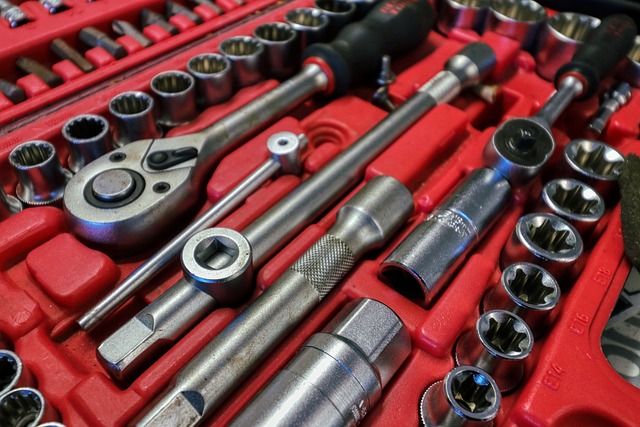When your HVAC system is underperforming due to potential issues with the compressor or condenser, it's important to evaluate whether repairs or replacements are the most cost-effective and practical option. Compressors are critical for pressurizing refrigerant, which then releases heat in the condenser, enabling your HVAC system to circulate conditioned air effectively. To make informed decisions on repair needs, consider the age, repair history, and financial implications of your current system. Professional HVAC services can assist with this assessment. Watch for signs like inconsistent temperature control, unusual noises, refrigerant leaks, or unexpected high energy bills, as these may indicate malfunctions. If your system is not keeping your home at the desired temperature efficiently, or if it's showing signs of wear or damage, it might be time to consider an upgrade, focusing on the energy efficiency ratings and potential performance enhancements of new units. Regular maintenance can prevent some issues, but when these warning signs appear, expert HVAC repair services should be consulted for proper diagnosis and treatment to ensure your system operates efficiently and maintains optimal comfort levels in your home. Remember that prompt attention to HVAC repairs or replacements is crucial to maintain the functionality and longevity of your system.
When the heat waves hit or the cold creeps in, a properly functioning HVAC system is your home’s savior. At the heart of this lifeline are the compressors and condensers, pivotal components that necessitate careful attention and timely maintenance. This article delves into the complexities of HVAC repair, with a focus on the challenges and considerations surrounding the upkeep of compressors and condensers. We’ll explore their critical roles within your system, identify signs of failure, discuss when professional service is required, and provide insights into cost-effective solutions. Whether it’s assessing the damage, understanding common malfunctions and fixes, or navigating maintenance tips to extend the life of these components, this guide equips you with comprehensive knowledge for making informed decisions. Furthermore, we’ll cover the process of replacement, energy efficiency improvements post-repair, warranty and insurance aspects, and how to select the right HVAC contractor. With a look at real-world success stories and future-proofing strategies, your HVAC system will be in capable hands.
- Understanding Your HVAC System: The Role of Compressors and Condensers
- Signs Indicating a Faulty HVAC Compressor or Condenser
Understanding Your HVAC System: The Role of Compressors and Condensers

When confronted with issues in your HVAC system, it’s crucial to assess whether repairing or replacing components like compressors and condensers is the most prudent course of action. Compressors are integral to the refrigeration cycle within an HVAC system, responsible for compressing refrigerant gas, which significantly elevates its temperature and pressure. This high-pressure gas then travels to the condenser. The condenser’s role is equally vital; it dissipates heat from the refrigerant, condensing it back into a liquid. This phase change is a critical part of the cycle that returns conditioned air to your living spaces.
Assessing HVAC repair needs involves understanding the efficiency and performance of these components. Compressor malfunctions can stem from various causes, including mechanical wear, electrical issues, or refrigerant leaks. A professional HVAC service can diagnose whether a repair or replacement is necessary based on factors like the age of your system, the frequency of repairs, and the overall cost implications. Condensers also require careful evaluation as they are exposed to external elements and can become obstructed or inefficient over time. The decision to replace rather than repair should be made after considering the energy efficiency ratings, the potential for improved performance, and the expected lifespan of the new unit. By understanding the role of compressors and condensers within your HVAC system, you are better equipped to make informed decisions regarding HVAC repair needs, ensuring optimal functionality and indoor comfort.
Signs Indicating a Faulty HVAC Compressor or Condenser

When your HVAC system isn’t performing as it should, there are distinct signs that can indicate a malfunctioning compressor or condenser. A key indicator is irregular cooling or heating patterns; if your home takes an unusually long time to reach the desired temperature or fails to maintain it consistently, these components may be on their way out. Another telltale sign is unusual noises during operation, such as grinding, hissing, or buzzing sounds that are out of the ordinary for your system. These can signal mechanical issues within the compressor. Additionally, check for refrigerant leaks; if you notice a decrease in refrigerant levels without any clear explanation, it’s likely that there’s a leak that needs immediate attention. Over time, if your energy bills are significantly higher than usual, this can also be a sign that your HVAC compressor or condenser is not functioning efficiently, often due to wear and tear or accumulated dirt and debris affecting its performance. Regular maintenance can prevent many of these issues, but when faced with these signs, professional HVAC repair services should be consulted to assess the situation accurately and recommend whether a repair or replacement of the compressor or condenser is necessary to restore your system’s optimal operation.
When faced with malfunctioning HVAC compressors or condensers, discerning homeowners recognize the necessity for prompt and effective action. As detailed in this article, these components are pivotal to your system’s operation, regulating temperature and ensuring efficiency. Recognizing signs of distress, such as inconsistent cooling or heating, unusual noises, or an increase in energy costs, is crucial for timely HVAC repair interventions. Whether a fix or a replacement is in order, the decision should be guided by a professional’s assessment. Their expertise will ensure your system operates at peak performance, maintaining comfort and efficiency throughout the seasons. Investing in reliable HVAC repair services not only extends the lifespan of your unit but also safeguards your home environment and budget.
